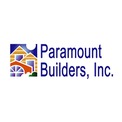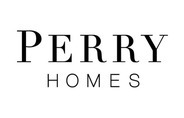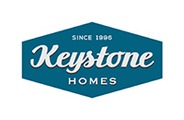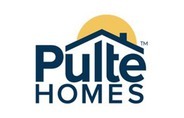Best Home Builders and Developers
 HomeAdvisor (Powered by Angi)4.8(22,670)
HomeAdvisor (Powered by Angi)4.8(22,670) Lindal Cedar Homes4.9(48)
Lindal Cedar Homes4.9(48)- Southern Energy Homes4.8(46)
Building a home is a lengthy, complicated and expensive process that requires a lot of work. Read our guide to research the best home builder and developer for you. We explain what to look for to ensure you hire home builders who are reliable and trustworthy.
- Our recommendations are based on what reviewers say.
- 4,426,419 reviews on ConsumerAffairs are verified.
- We require contact information to ensure our reviewers are real.
- We use intelligent software that helps us maintain the integrity of reviews.
- Our moderators read all reviews to verify quality and helpfulness.
Compare Top Home Builders and Developers | ||||||
|---|---|---|---|---|---|---|
Connects homeowners and renters with home improvement specialists for free. Average home improvement job costs between $120 and $6,000. Includes damage protection guarantee up to $500,000. Online booking available. |  | Get a Quote Call Center Open (866) 782-4077 | ||||
Lindal Cedar Homes has a 60-year history of designing and building cedar homes that are completely natural. The company works closely with prospective clients to build homes that clearly reflect their passions and priorities. |  | |||||
Southern Energy Homes is a maker of single and multisection manufactured homes. The company was founded in Addison, Alabama, in 1982, and has since built more than 100,000 manufactured homes in southern states. |  | Chat with a ConsumerAffairs decision guide Live agent | ||||
Specializes in modern, new construction homes in amenity-rich areas. Trained home buying professionals help customers find the right home and community for them. Features flexible floor plans and affordable prices. |  | Learn More | ||||
Homebuilder in Arizona, California, Colorado, Florida, Idaho, Nevada, North Carolina, Texas and Washington. Offers interactive floor plans and virtual tours. Provides to personalize homes using online design studio. |  | |||||
Gemcraft Homes offers discounted pricing on property developments in Delaware, Maryland, Pennsylvania and West Virginia. With pricing that ranges from average to luxury, the company's options include quick move-ins. | Chat with a ConsumerAffairs decision guide Live agent | |||||
Specializes in manufactured builds, including modular homes, site-built homes and tiny houses. ISO 14001 & LEED Certified. Able to help customers obtain financing and insurance policies. |  | Chat with a ConsumerAffairs decision guide Live agent | ||||
Paramount Builders offers energy-efficient updates such as replacement windows, vinyl siding, roofing and doors. With 23 years of experience, the firm is an industry leader in exterior remodeling, giving every home curb appeal. |  | Chat with a ConsumerAffairs decision guide Live agent | ||||
Maronda Homes opened in 1972 as a family-owned business and has built thousands of new homes in Florida, Georgia, Kentucky, Ohio and Pennsylvania. The firm focuses on building quality, cost-effective homes to save clients money. |  | Chat with a ConsumerAffairs decision guide Live agent | ||||
Serving the entire southeastern United States, Adams Homes has been streamlining the home buying process since 1991. As one of the largest private home builders in the country, the firm gives its customers added buying power. | Chat with a ConsumerAffairs decision guide Live agent | |||||
What to consider when you hire a builder
Energy-saving features
Many homebuilders offer a wide variety of energy-saving features that can save you money each month on your utility bills while protecting the environment.
- Energy-efficient windows: Homes can be built with enhanced insulated-glass windows that do a better job of keeping homes warmer in winter and cooler in summer while still admitting plenty of natural sunlight.
- Solar paneling: Some homebuilders can install solar panels for a more energy-efficient way to produce hot water and electricity.
- Natural gas vs electric: Homes can be built that run on natural gas or propane rather than depending on electricity to power appliances, water heaters or heating systems.
Complete customization
Some homebuilders allow you to customize your home in many different ways, including number of rooms, floor layout, paint colors, countertop and flooring options, siding type and color, style of cabinetry, and choice of plumbing fixtures, to name a few.
- Work from consumers' plans: You can bring your own home-building plans to the builder rather than choosing from a book of existing plans.
- Room specifications: Homeowners can specify the number of rooms they want, the size of the rooms, and special features of each room, such as crown molding, wainscoting, ceiling fans, and window size and placement.
- Number of floors: Consumers can specify how large the house is to be, including how many floors and what rooms to include on each floor. They may also be able to specify whether they want a basement or attic.
Warranties
Most homebuilders offer warranties on the homes they build at little or no cost to you.
- Repair warranties: These warranties allow homebuyers to get free repairs on structural damage, whether that damage is minor or major.
- Replacement warranties: If something related to the building of the home causes the home to become unsuitable for living and cannot be repaired easily, the homebuilder may build a replacement home at no additional cost.
- System repairs: There may be warranties on the installation of electrical wiring, plumbing pipes, furnace, gas lines and other mechanical systems.
Inspected and approved
Prior to move in, the home must pass inspection to certify that it is built safely and meets local or state standards.
- Inspections throughout the process: Some homebuilders allow consumers to visit the site as the home is being built to view progress and inspect already-completed parts of the home. Be sure to schedule any visits ahead of time with the builder; active jobsites can be dangerous places.
- State inspections: The homebuilder may provide the services of a certified inspector, licensed by the state, to look at the home and determine its safety. The town’s building department will schedule routine inspections throughout the construction process to ensure the home is being built to code.
- Pre-move in repairs: The consumer can request repairs after inspection and before move-in to make the home safer.
Options for upgrades
Homebuilders may offer standard features with the ability to pay extra to upgrade the home.
- Energy efficiency: Solar panels, triple-pane windows, or other energy-saving upgrades may cost extra and can be installed at the homeowner's request.
- Adding outlets to more rooms: The homebuilder can upgrade the electrical system by adding extra outlets in bathrooms, bedrooms, home offices and other areas where you need more electricity.
- Extra garages and rooms: Prior to the start of construction, most builders are amenable to altering the existing blueprint if you’d like to add another room, enlarge an existing room, or build a garage. Be sure to get all changes in writing with detailed information about cost, size and materials.
Model homes
Most homebuilders offer model homes for potential buyers to tour prior to signing a contract to build their home. Model homes give buyers a chance to see the quality, style and fixtures they can expect in their own home.
- Different sizes and features: Many builders offer model homes of different sizes and architectural styles with upgraded features so potential homebuyers can get an idea of the builder's work. However, be aware that model homes are often loaded with fixtures and finishes that aren’t included in the base price. For example, the model might have granite counters, tiled foyer, whirlpool tub and backyard deck, which might all cost extra. When touring a model home, be sure to ask which features are upgrades and which ones are included in the base price.
- Duplicate orders: If consumers see a model home they really like, they can order an exact replica to be built on their lot.
- Get an idea of lot size: The lot size is as important to some consumers as the house size; touring model homes can help users decide how big a yard they want to have as well as how big a home they want to have. However, be sure to ask if the model-home lot is the same size as your home’s lot.
Types of home builders and developers
Certified green builders
Certified green builders are trained to build homes in a way that saves energy and protects the environment. These builders often use sustainable materials and install energy-efficient windows, solar panels and heating and cooling systems.
Urban designers
Urban designers focus on creating homes for people who live in cities and other thickly settled neighborhoods with small building lots. The homes are designed to accommodate a large number of people and to reduce traffic around the building site.
Remodelers
Remodelers upgrade existing homes to meet homeowners' specifications, whether that means adding extra rooms, renovating existing rooms or making the home more energy efficient.
Local builders
Many homebuilders are local business people who contribute to property values, as well as to their community by providing well-paying jobs and buying from local suppliers. Most builders also give back through local charities.
Home Builders FAQ
Do manufactured homes last long?
Manufactured homes can last as long as traditional homes with proper maintenance and upkeep. They are built using the same methods and materials as site-built homes, but the construction takes place in a factory setting.
Which is better, modular or manufactured home?
Modular and manufactured homes each have their own benefits:
- Modular homes are constructed to the same building codes as site-built homes. Banks help buyers finance modular homes similarly to traditional homes.
- Manufactured homes are built according to HUD code and are less expensive than modular homes.
Is it cheaper to build a house or buy a manufactured home?
It’s cheaper to buy a manufactured home than to build on-site. On average, a manufactured home costs around $63,000, while the cost to build a house is about $250,000 to $1 million or more.
How do I choose a home builder?
To choose a home builder, first contact your local home builders’ association and get a list of member contractors in your area. From there, narrow your list by:
- Researching each company
- Reading reviews
- Interviewing each builder
- Speaking with former clients
- Getting estimates
How do I find a builder to build a house?
Start by contacting your local homebuilders’ association to ask for a list of members. You can also ask friends or family for recommendations. Reach out to well-reviewed contractors for proof of licensing and insurance and a list of references.
How do I find a reputable home builder?
Reputable home builders are experienced, licensed and insured and members of professional trade organizations. To make sure your builder is reputable:
- Read ratings and reviews and talk to former clients
- Verify licensing and insurance
- Ask how the builder guarantees materials and workmanship
How much is a custom-built house?
On average, a custom-built house costs $100 - $400 per square foot. To build a 2,500 square foot home — the median size of a newly constructed house, according to the most recent census data — expect to spend $250,000 - $1 million.
What questions should I ask a builder?
There are several questions you should ask builders before making a final decision on which company to hire. These include:
- How much experience do you have designing and building homes?
- Are you licensed, insured and bonded?
- Can I customize a home?
- Will you be obtaining permits and inspections?
- How much will it cost to build the home?
- How long will it take to build the home?
- Do you have a list of references I can contact?
- Where can I see homes you’ve built?
Thanks for subscribing.
You have successfully subscribed to our newsletter! Enjoy reading our tips and recommendations.
Author reviews for home builders and developers

KB Home offers customized homes and specializes in allowing buyers to control most aspects of the design process.
- Built-to-order services: Users can specify exactly what they want their home to look like during the ordering process, right down to the cabinet door knobs.
- Available in many areas: Currently, KB Home builds homes in the District of Columbia and seven states: Arizona, California, Colorado, Florida, Nevada, North Carolina and Texas.
- Personal design consultation demystifies the custom-build process: Consumers discuss their preferences and get pricing information to build a designer home that meets their budgetary requirements.
- Models can be seen on a walk-in basis: Prospective buyers can drop into the KB Design Studio nearest them to view options whenever it's convenient; an appointment is only needed when they are ready to buy.
- Home customization can be rolled into mortgages: Most of the building costs are covered by the buyer’s mortgage after purchase.

LGI Homes has been building new home communities since 2002. Their goal is to provide homeowners across the United States with homes of great value at affordable prices. The company also employs a team of home buying professionals to help new homebuyers through the process of buying a house. Choose from multiple modern floor plans and customization options.
- Home finder: LGI’s home finder feature lets visitors select a state, city and LGI development within each city to view available homes and floorplans. Each available home has an estimated monthly cost and visitors can call for a quote on new floorplans.
- LGI warranty: LGI offers a 10-year, structural warranty and a one-year warranty on most other components on their homes. Homeowners can submit a warranty service request online by logging into their site and filling out a request form.
- LGI Active Adult communities: LGI’s Active Adult communities are built around and within close proximity to a city's main features. Active Adult communities are near entertainment and sporting venues, airports, colleges and universities as well as golf courses, hiking and biking trails and tennis courts.
- Energy efficiency: LGI focuses on energy efficient homes, especially homes located in the hottest part of the United States. By using reliable products from insulation to heating and cooling systems, and energy efficient appliances, LGI Homes can reduce energy bills by up to 30 percent.
- Realtors: LGI Homes has built relationships with real estate professionals that know their floorplans and communities well, and can connect customers to one of their realtors based on the region they are interested in. Realtors can also keep interested buyers updated on promotions and special offers through email updates.

D.R. Horton Homes is a family-owned construction business that started building homes in the Dallas/Fort Worth area more than 35 years ago. It’s now the largest homebuilder in the United States.

George Beazer, the founder of Beazer Homes, began building homes in England during the late-1690s. The company continued to grow over the centuries and in 1986, it moved to the U.S. to begin building custom homes. The company builds in 13 states: Arizona, California, Delaware, Florida, Georgia, Indiana, Maryland, Nevada, North Carolina, South Carolina, Tennessee, Texas and Virginia.

Meritage has built over 90,000 homes since its inception in 1985. All of its homes are Energy Star compliant. Meritage currently builds in nine states: Arizona, California, Colorado, Florida, Georgia, North Carolina, South Carolina, Tennessee and Texas. The company has been named Texas Builder of the Year five times.

Fleetwood Homes has been building custom homes since 1950. It's one of the largest manufactured homebuilders in the United States.

Richmond American grew out of a local Denver operation and became a homebuilder that has built over 175,000 structures in nine states.

Clayton Homes specializes in affordable, quality-built modular and manufactured homes. It offers floor plans for a wide variety of home sizes and styles, from tiny homes to 4 bedroom houses. Their homes are all designed and manufactured in the United States.

Woodside Homes has been providing custom-built homes since 1977. It offers services to homebuyers in the Western United States.

In business since 1967, Perry Homes is one of the largest homebuilders in Texas. It offers customized, affordable homes in the Austin, Houston and San Antonio areas.

Dan Ryan Builders is a privately owned, locally focused homebuilder that operates on the East Coast of the United States. It has been building homes for 25 years. Dan Ryan builds homes in six states: Maryland, North Carolina, Pennsylvania, South Carolina, Virginia and West Virginia.

Highland Homes has been building custom homes in communities throughout Southwest, Central and North Central Florida for more than two decades. The family-owned company has dozens of home plans from which homeowners can choose, along with additional options to customize their homes.

These home developers build one- and two-story single-family homes, quad homes and townhomes in the Greensboro, Burlington and Winston-Salem areas of North Carolina. Home buyers can build from the ground up or choose from already-built models for a quick move-in.
Compare Top Home Builders and Developers | ||||||
|---|---|---|---|---|---|---|
Designs and builds move-in ready homes with energy-efficient features and smart home capabilities. Ideal for investors and budget-conscious buyers. Price varies based on floor plan, size, style and location. |  | Chat with a ConsumerAffairs decision guide Live agent | ||||
Lennar Homes has been one of the most popular home building companies in the United States since its establishment in 1954. Headquartered in Miami, Florida, the company builds a variety of home types in cities across the country. | Chat with a ConsumerAffairs decision guide Live agent | |||||
Ryan Homes is a home building company that was founded in Pittsburgh, Pennsylvania, in 1948. The company specializes in building suburban, active-adult, and resort communities in several Eastern and Midwestern states. |  | Chat with a ConsumerAffairs decision guide Live agent | ||||
Toll Brothers has been at the forefront of luxury home and community design since 1967. The firm's multiple Builder of the Year awards show that its reputation for excellence is well-deserved, giving buyers peace of mind. | Chat with a ConsumerAffairs decision guide Live agent | |||||
Richmond American Homes has been a new home builder for almost 40 years. The firm works in a few selected states across the country and specializes in building new single-family homes, even for people working on a short timeline. |  | Chat with a ConsumerAffairs decision guide Live agent | ||||
Established in 1959, K Hovnanian Builders is a company that offers home building services across the United States. The company was founded by Kevork S. Hovnanian, and it offers homes in a wide range of styles. |  | Chat with a ConsumerAffairs decision guide Live agent | ||||
Offering more than 100 customizable designs, Perry Homes is a popular choice. Through live and Internet consultations, home buyers shop with convenience and confidence. |  | Chat with a ConsumerAffairs decision guide Live agent | ||||
With homes and communities in 16 locations nationwide, M/I Homes offers more than 30 years of experience and has worked with nearly 90,000 homeowners. The firm prioritizes customer service as a corporate philosophy. |  | Chat with a ConsumerAffairs decision guide Live agent | ||||
Builder that offers custom-built and move-in ready homes. Works in California, Nevada, Utah and Arizona. Interactive floor plans, VR tours and educational resources online. Some green home features available. |  | Chat with a ConsumerAffairs decision guide Live agent | ||||
Operating in Maryland, Pennsylvania, Virginia, West Virginia, North Carolina and South Carolina, Dan Ryan Builders offers more than 25 years of experience. The company also holds a spot on the Builder Top 100 list. | Chat with a ConsumerAffairs decision guide Live agent | |||||
Offering Life Tested (TM) homes in more than 25 states, Pulte Homes combines innovative design with functionality. The company was founded in 1950, and it is headquartered in the Buckhead section of Atlanta, Georgia. |  | Chat with a ConsumerAffairs decision guide Live agent | ||||
Meritage Homes builds in nine states, offering energy-efficient living spaces across the country. Building 100 percent Energy Star certified homes, the firm's designs can save home owners up to 50 percent on annual utility costs. | Chat with a ConsumerAffairs decision guide Live agent | |||||
Beazer Homes is one of the biggest home building companies in the United States. Beazer operates in Arizona, California, Delaware, Florida, Georgia, Indiana, Maryland, Nevada, the Carolinas, Tennessee, Texas and Virginia. | Chat with a ConsumerAffairs decision guide Live agent | |||||
Centex Homes is a home building company headquartered in Dallas, Texas. Centex is a subsidiary of the larger home building company Pulte Group, Inc., and specializes in building single-family homes and townhomes. |  | Chat with a ConsumerAffairs decision guide Live agent | ||||
Palm Harbor Homes builds on homeowner lots using manufactured, modular or mobile homes. The firm has locations nationwide with display options set up, so home buyers can walk through potential layouts before buying. |  | Chat with a ConsumerAffairs decision guide Live agent | ||||
Fleetwood Homes has been building single-family houses since 1950 and has worked with almost 1.5 million customers and sources durable, affordable material. |  | Chat with a ConsumerAffairs decision guide Live agent | ||||
Highland Homes serves locations throughout Florida with addresses ready for move-in and customized construction. Every home is warrantied to give buyers confidence, and the firm's list of preferred lenders streamlines purchasing. |  | Chat with a ConsumerAffairs decision guide Live agent | ||||
Brookfield Residential is a leading land developer and home builder in North America. Established in 2011, the company develops properties in Canada, Denver, Washington, D.C., Phoenix, Austin, and Northern and Southern California. |  | Chat with a ConsumerAffairs decision guide Live agent | ||||
Custom-built homes. Several floor plans available. Neighborhoods in three North Carolina cities. Financing options. Team of real estate agents available for potential buyers. Single-family home, townhome and other home styles. |  | Chat with a ConsumerAffairs decision guide Live agent | ||||
Skyline Corporation specializes in building manufactured and modular homes in many styles. Their modular homes range in size from around 600 square feet to over 2,000 square feet. All their homes come with a 15-month warranty. |  | Chat with a ConsumerAffairs decision guide Live agent | ||||
Topsider Homes has been building homes and additions since 1968 and has worked on more than 10,000 homes. The company is based in Clemmons, North Carolina, and builds hurricane-resistant houses up and down the Atlantic coastline. |  | Chat with a ConsumerAffairs decision guide Live agent | ||||
Pardee Homes is a full-service real estate company. It offers help finding listed properties, lining up financing, and designing one-of-a-king homes that are built to customer specifications in California and Nevada. |  | Chat with a ConsumerAffairs decision guide Live agent | ||||
Information in this guide is general in nature and is intended for informational purposes only; it is not legal, health, investment or tax advice. ConsumerAffairs.com makes no representation as to the accuracy of the information provided and assumes no liability for any damages or loss arising from its use.
Want your company to be on this guide?
Yes, continueYou’re signed up
We’ll start sending you the news you need delivered straight to you. We value your privacy. Unsubscribe easily.
